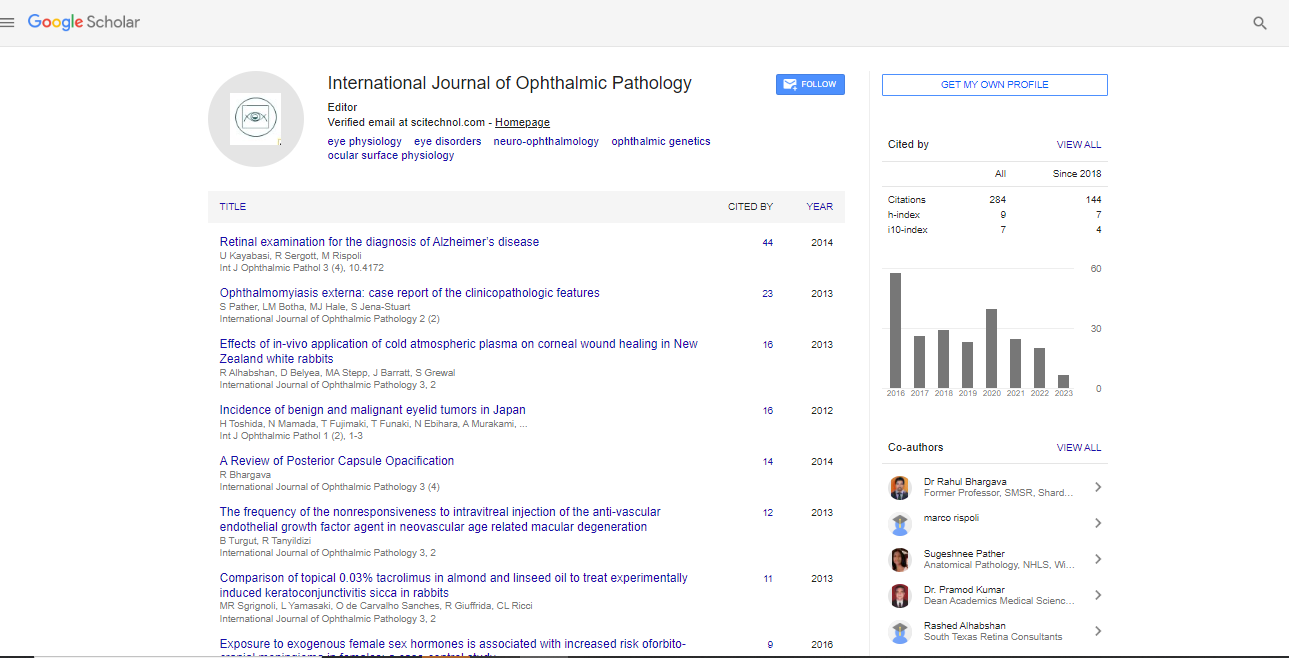Treatment of Vogt-Koyanagi-Harada Disease
Musab K. Alaq, Akinwale A. Akinfe and Mohammed K. AlNour
Jouf University, SAU
Prince Mutaib Bin Abdulaziz Hospital, SAU
: Int J Ophthalmic Pathol
Abstract
Vogt-Koyanagi-Harada (VKH) disease is a T-cell-mediated autoimmune inflammatory disease characterized by granulomatous panuveitis with a variety of other systemic manifestations. A 29-yearold man referred with a two-week history of pain, redness, photophobia, and blurring of vision of the right eye. The patient reported a history of tinnitus and vertigo. Ocular examination revealed that the visual acuity was hand movement oculus dextrus (OD) and 1.0 oculus sinister (OS), slight periocular depigmentation in the right eye, iris bombe in the right eye, sunset glow sign similar to Dalen-Fuchs nodules of multifocal choroiditis in the right eye, reduced fovea reflex/subtle macular edema in the right eye, and normal anterior and posterior segment OS. The patient underwent a series of investigations and treatments, including corticosteroids, cyclosporine, antibiotics, and other local eye drugs. Surgical treatment included scheduling intravitreal ranibizumab for the right eye. Outcomes included improved general health conditions and improved visual condition (visual acuity improved to 0.8 OD). The combined therapy of immunosuppressive drugs with steroids was effective in improving visual impairment. Categories: Ophthalmology Keywords: autoimmune, uveitis, systemic, granulomatous
Biography
Musab K. Alaql is a renowned ophthalmology Student in Saudi Arabia doing his MBBS from the Jouf University, Saudi Arabia. Musab K. Alaql is working in Department of Ophthalmology, Jouf University, Saudi Arabia. He publishes many articles in reputed journals.
 Spanish
Spanish  Chinese
Chinese  Russian
Russian  German
German  French
French  Japanese
Japanese  Portuguese
Portuguese  Hindi
Hindi 